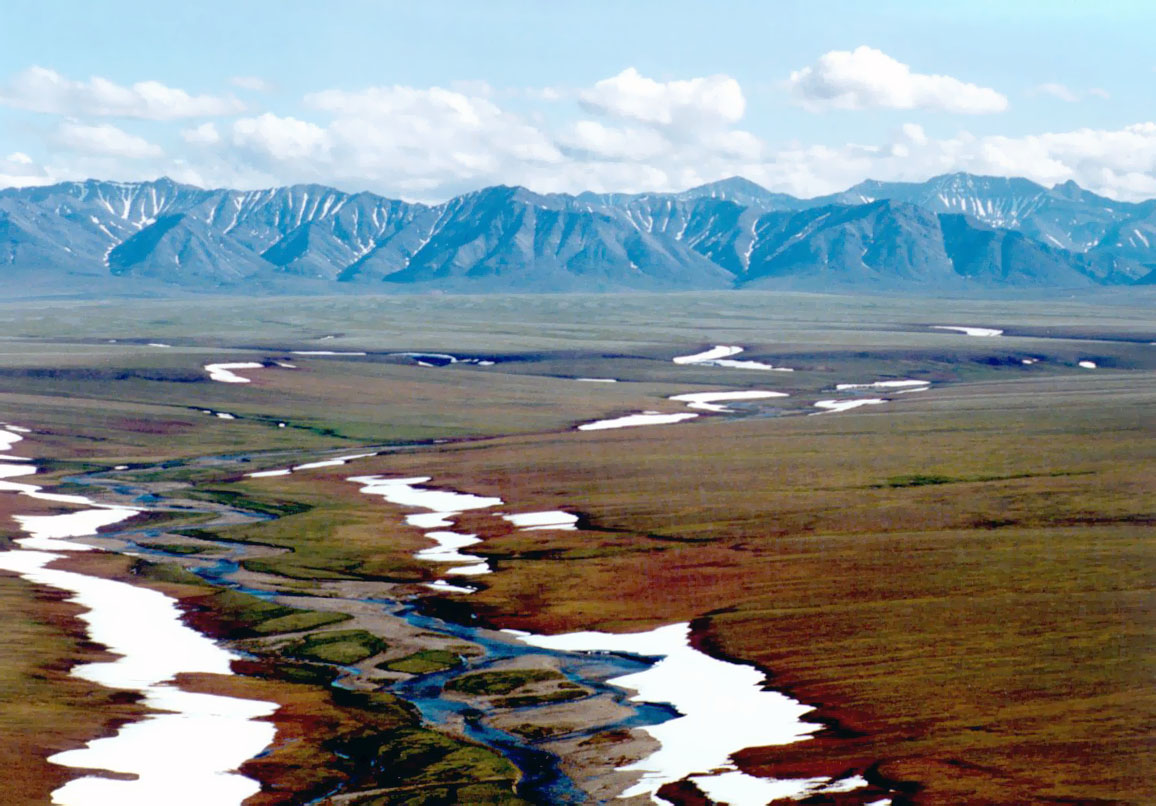
- Details
- By Native News Online Staff
The U.S. Department of the Interior unveiled a sweeping set of initiatives aimed at expanding energy development, modernizing land and resource management, and improving public health and safety across Alaska.
The announcement, made during an event with Alaska’s congressional delegation and governor, outlines several major actions: reopening the Coastal Plain of the Arctic National Wildlife Refuge for oil and gas leasing, approving right-of-way permits for the Ambler Road, advancing the King Cove–Cold Bay Road corridor through a land exchange, and providing land allotments for eligible Alaska Native Vietnam-era veterans.
Together, these steps are designed to reduce regulatory barriers, empower local communities, and strengthen Alaska’s role in national energy security and economic growth.
“From day one, President Trump directed us to unlock Alaska’s energy and resource potential while honoring commitments to the state and local communities,” said Secretary of the Interior Doug Burgum. “By reopening the Coastal Plain and advancing key infrastructure, we are strengthening energy independence, creating jobs and supporting Alaska’s communities while driving economic growth across the state.”
Oil and Gas Leasing
The Department’s new record of decision reopens 1.56 million acres of the Coastal Plain of the Arctic National Wildlife Refuge to oil and gas leasing—reversing the prior administration’s 2024 restrictions. This move aligns with Executive Order 14153, Secretarial Order 3422, the 2017 Tax Cuts and Jobs Act, and the One Big Beautiful Bill Act. The Interior Department is also reinstating leases to the Alaska Industrial Development and Export Authority (AIDEA) that had been previously canceled, enabling development to resume.
Additionally, the Bureau of Land Management (BLM) has issued a call for nominations to identify tracts for inclusion in an upcoming oil and gas lease sale within the National Petroleum Reserve in Alaska, scheduled for this winter. This will be the first lease sale in the 23-million-acre reserve since 2019.
Ambler Road
Following the President’s approval of AIDEA’s appeal, the BLM and National Park Service have reissued right-of-way permits for the Ambler Road Project, with the U.S. Army Corps of Engineers also granting its permit. The Department has conveyed nearly 23,600 acres near Ambler to the State of Alaska, finalizing the state’s land selections in the area. This action enhances local control over land use, supports resource development, and bolsters economic opportunities.
Izembek and King Cove Land Exchange
After decades of advocacy by the King Cove community for a reliable road connection to the Cold Bay airport, the Department has finalized a land exchange enabling the King Cove–Cold Bay corridor. The move, which includes issuing an official land patent to the King Corporation, will improve emergency medical access for residents and increase subsistence access while expanding wilderness protections and safeguarding wildlife habitat within the Izembek National Wildlife Refuge.
Land Allotments for Alaska Native Vietnam Veterans
The Department also announced progress in delivering land allotments to eligible Alaska Native Vietnam-era veterans who were unable to claim land during their military service. During the event, the BLM awarded Certificates of Allotment—each granting 160 acres—to three Alaska Native Vietnam veterans under the 2019 Dingell Act. Applications for the program remain open until December 29, 2025.
Collectively, these actions underscore the Trump administration’s commitment to responsible resource development, local empowerment, and fulfillment of federal obligations. The Interior Department emphasized that the initiatives will help expand domestic energy production, support economic growth, and strengthen Alaska’s role in securing America’s energy future.
More Stories Like This
Native News Weekly (August 25, 2024): D.C. BriefsNavajo Nation Mourns the Passing of Former Vice President Rex Lee Jim
Deb Haaland Earns Endorsement From Communications Workers of America Local 7076
University Soccer Standout Leads by Example
Two Native Americans Named to Democratic Congressional Campaign Committee's“Red to Blue” Program
Help us defend tribal sovereignty.
At Native News Online, our mission is rooted in telling the stories that strengthen sovereignty and uplift Indigenous voices — not just at year’s end, but every single day.
Because of your generosity last year, we were able to keep our reporters on the ground in tribal communities, at national gatherings and in the halls of Congress — covering the issues that matter most to Indian Country: sovereignty, culture, education, health and economic opportunity.
That support sustained us through a tough year in 2025. Now, as we look to the year ahead, we need your help right now to ensure warrior journalism remains strong — reporting that defends tribal sovereignty, amplifies Native truth, and holds power accountable.
 The stakes couldn't be higher. Your support keeps Native voices heard, Native stories told and Native sovereignty defended.
The stakes couldn't be higher. Your support keeps Native voices heard, Native stories told and Native sovereignty defended.
Stand with Warrior Journalism today.
Levi Rickert (Potawatomi), Editor & Publisher


